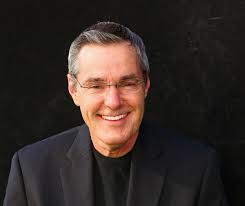 The North Carolina Physicians Health Program (NCPHP) has named Clark Gaither, MD, FAAFP, as Medical Director, effective January 1, 2017. The NCPHP is dedicated to helping medical professionals and assists with recovery from substance use disorders and other conditions such as depression, anxiety or burnout that could impair a provider’s ability to safely provide care and services to their patients.
The North Carolina Physicians Health Program (NCPHP) has named Clark Gaither, MD, FAAFP, as Medical Director, effective January 1, 2017. The NCPHP is dedicated to helping medical professionals and assists with recovery from substance use disorders and other conditions such as depression, anxiety or burnout that could impair a provider’s ability to safely provide care and services to their patients.
Dr. Gaither has extensive personal and clinical experience within NCPHP and in the areas of addiction and recovery. He is a founding member of the North Carolina Consortium for Physician Resilience and Retention, which the North Carolina Medical Society (NCMS) helped spearhead. He has served as a volunteer for NCPHP for many years, as a member of the Compliance Committee, as a member of the Board of Directors for five years (2002-2007), and as the Board Chair for two consecutive years (2004 and 2005).
Since 2000, Dr. Gaither has served as a physician monitor for NCPHP participants. He has also presented on behalf of NCPHP to groups at hospitals, physician practices, and medical schools throughout the state. In addition to practicing as a family physician for 27 years, he has gained an additional area of expertise – Job Related Burnout and Restoring Balance and Wellness to one’s professional life— a valuable asset to the depth and breadth of services NCPHP provides.
“We are excited and honored that Dr. Gaither would join the NCPHP team,” said NCPHP CEO Joseph Jordan, Ph.D. “He brings a wealth of experience working with physician health issues and his expertise in burnout, wellness and recovery are a perfect fit for NCPHP moving forward.”
NCPHP originated as a physicians health committee of the North Carolina Medical Society (NCMS). Established as a formal program in 1988, NCPHP provides assistance and advocacy for licensees of the North Carolina Medical Board, the North Carolina Board of Veterinary Medicine, and the North Carolina Board of Pharmacy. From 1988 through 2015, NCPHP provided direct assistance to more than 3,600 medical professionals and indirect assistance to thousands more through educational and advisory programs.


Congratulations to Clark Gaither.
Way to go Clark!